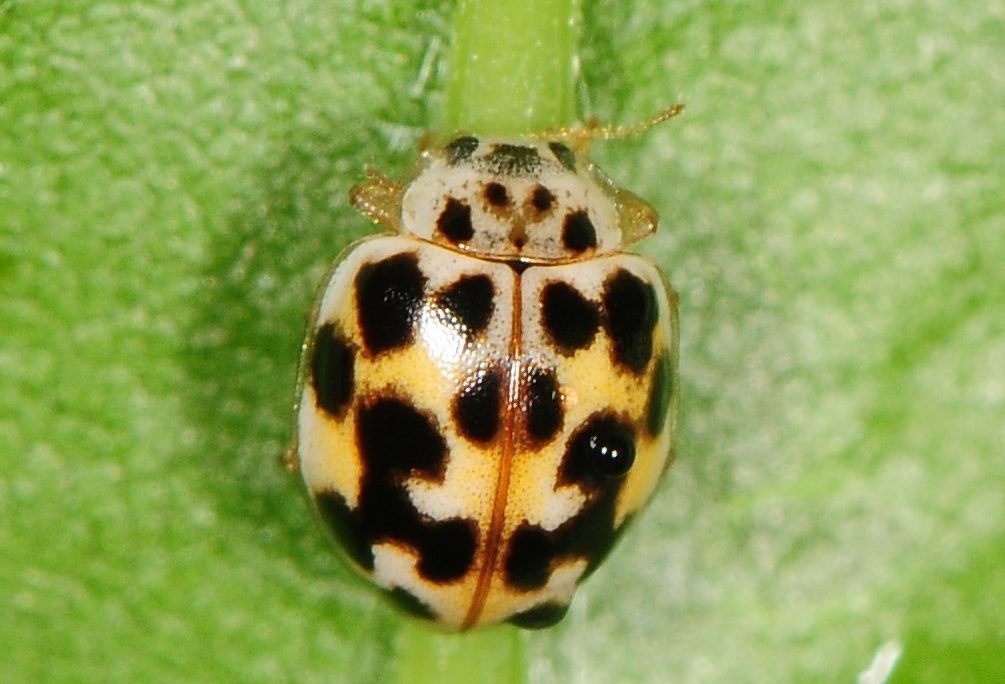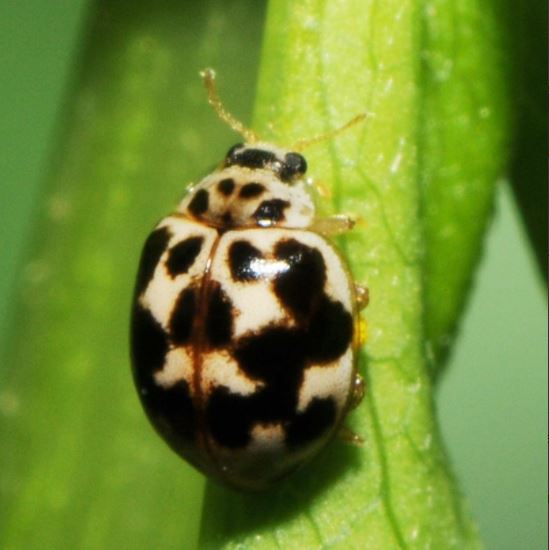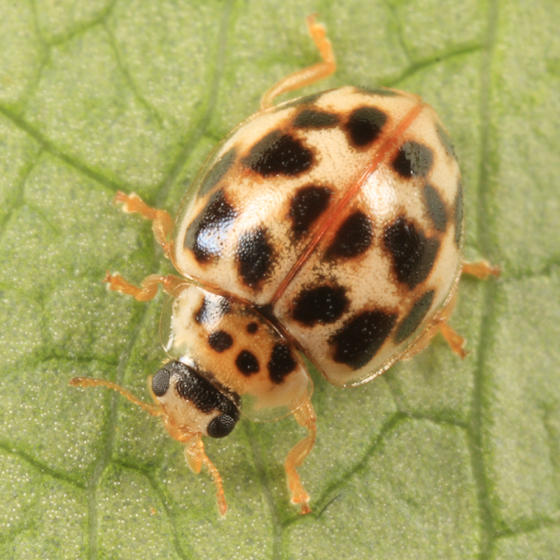
Twenty-spotted Lady Beetle © Jason Michael Crockwell
The Twenty-spotted Lady Beetle is native to North America. This species feeds primarily on fungus, especially mildews. It’s usually found at the base of Skunk Cabbage plants in the early spring, moving to any plant with powdery mildew on it in the summer and early fall. Its spot pattern varies, however its overall color is usually pale with dark or multi-colored spots.
Status
Native
Listed as Vulnerable in Indiana; Imperiled in Saskatchewan; Apparently Secure in Alberta, Manitoba, Ontario, and Newfoundland; and Secure in Nova Scotia, New Brunswick, and British Columbia.
Last Seen
2021
Fun Fact
Another common name for the Twenty-spotted Lady Beetle is the “Wee-tiny Ladybug”.
Identification
Twenty-spotted Lady Beetles are 1.75 to 3.0 mm in length.
- Head: White or pale, with a black patch at the top.
- Pronotum: White or pale with four to five dark spots (brown or black). The spots are arranged in a vague “M” shape.
- Elytra: Underlying color is white, with black spots. There are sometimes orange patches as well (eastern populations only). In other parts of the Twenty-spotted Lady Beetle’s range, the elytra may have bicolor or brown markings.
- Legs: Light orange.
- Often confused with: Fourteen-spotted Lady Beetle, Asian Lady Beetle.
Habitat
Twenty-spotted Lady Beetles will occur on any plants that are infected with mildews, from ground level to tree canopies.
General Range
Most of North America, excluding Florida and the northernmost parts of Canada. The Twenty-spotted Lady Beetle’s range does extend into Alaska, however.
Food
Mildews on plant leaves, especially powdery mildew.
Life History
Twenty-spotted Lady Beetles overwinter in small aggregations in leaf litter. In the spring, Twenty-spotted Lady Beetles can be found in groups at the base of Skunk Cabbage plants and in shrubby vegetation. They will then disperse to forage on mildews. Eggs are laid on leaves of plants infected with mildew in small groups.
More Information
You can find more information about Twenty-spotted Lady Beetles using the following links:
Vermont Distribution
Visit the iNaturalist Observation Map and Occurrence Records to find out where Twenty-spotted Lady Beetles have been seen in Vermont.








